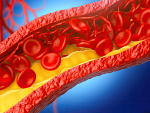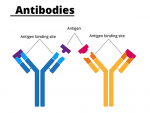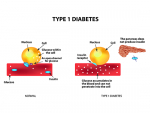Displaying items by tag: school of medicine
These findings could lead to non-invasive, low-cost tests and the early diagnosis of the disease, which progresses for decades before symptoms of dementia emerge.
Tagged under
UAB Hospital practice areas were honored with the “Best Hospital” designation, including cancer care, heart care, stroke care, minimally invasive surgery, comprehensive breast care, mammograms, obstetrics and women’s services.
Tagged under
Tagged under
Tagged under
An additional $5 million gift from Heersink will allow recruitment of top-tier faculty and enhance research efforts at UAB.
Tagged under
The site-directed addition of a polymer on the antibody trastuzumab helped this cancer-fighting antibody cross the blood-brain barrier.
Tagged under
As there is no current treatment for acute and recurrent acute pancreatitis, Dudeja hopes this grant will provide hope for those suffering with the disease.
Kelsey Hatcher has a rare double uterus and was pregnant with a baby in each. With the help of UAB, she delivered two healthy “twin” girls 10 hours apart — and on separate days.
Tagged under
Tagged under
A UAB expert is offering some of their top tips on how to avoid holiday heart syndrome and enjoy a heart-healthy holiday season.
Tagged under
UAB Medicine hosted a ribbon-cutting ceremony to commemorate the new NICU Bookworms vending machine. United States Representative Terri A. Sewell (AL-07) joined the ceremony and read to infants in the UAB RNICU and Children’s of Alabama NICU.
Tagged under
Burn survivor who received innovative “spray-on skin” treatment now giving back to UAB burn patients
Tagged under
This holiday season, one UAB expert suggests looking for ways to invest in time with elderly loved ones versus investing in gifts.
New findings from UAB researchers indicates that preventable environmental factors like repeated blows to the head in contact sports and pesticides and herbicides account for a substantial number of Parkinson’s disease cases.
Tagged under
These immune CD8 T cells may provide a target for treating the buildup of fatty lesions in the arteries called atherosclerosis.
Tagged under
While it has long been thought that the most direct health effect linked to the sanitation crisis in the Black Belt was due to soil-transmitted hookworm, a study led by UAB found no evidence of transmission.
Tagged under
After two and half years of not having a voice, Deborah Hays Emanuel can now sing her song of resilience thanks to the UAB Voice Clinic.
Tagged under
Sickle cell disease is the most common and clinically significant inherited blood disorder across the nation, and now there is an FDA-approved gene therapy to help those living with SCD.
Vaccination of neonatal mice with group A Streptococcus promotes clonal expansion of B cells that produce antibody against GlcNAc. The association of reduced Type 1 diabetes risk after group A Streptococcus infection is dependent on these GlcNAc-specific B cells.



















